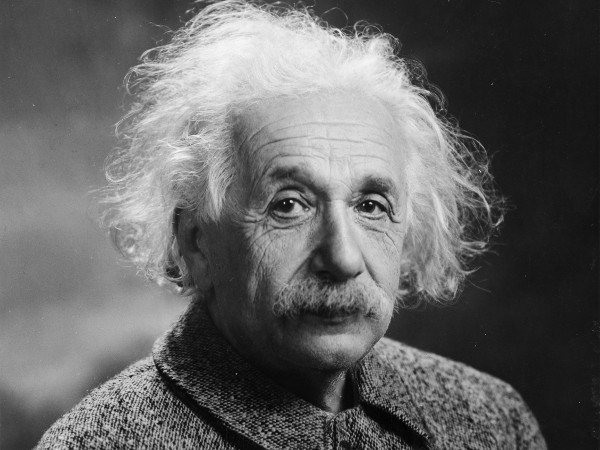Why is a Dead Physicist Censoring the Fed’s Internet?
 By Dewey Trueman
By Dewey Trueman
Special to YNOT
WASHINGTON – While I think we can all agree it’s not ideal to have federal government employees surfing porn on the job instead of dutifully depriving Americans of their civil rights or burning through taxpayers’ money with hair-brained feasibility studies, some measures to stop bawdy bureaucrats from watching porn at work simply go too far.
It’s one thing to install content filters or block access to well-known porn networks, but quite another to empower a dead physicist — even one as undeniably brilliant and capable as Albert Einstein — to actively censor the internet available to federal workers.
Evidently, the deceased genius was given new powers and authority following an internal assessment undertaken by the Dept. of Homeland Security. Previously, Einstein had focused on something called “sinkholing,” which I’m pretty sure is a federal euphemism for corn-holing, which I believe is in turn an internet euphemism for the unfortunate real-life practice of putting an insufficiently buttered length of corn on the cob up one’s butt.
While it’s not clear to me what about Einstein makes it possible for him to instantly analyze a wide range of online content and refuse to deliver 420 porn to some bored-stiff desk jockey at the Environmental Protection Agency while simultaneously keeping some pervert at the IRS from watching pegging videos, I’m willing to accept he’s able to do it somehow.
What concerns me about Einstein, however, is the same thing that worries me about more traditional, less dead-person-based content filters: the problem of over-inclusive filtering.
We’ve all heard about content filters accidentally preventing people from looking up information about breast cancer and sex-education resources, and we should be equally concerned about Einstein doing the same thing — not because he doesn’t understand the difference between a mammogram and tit-fucking, but because the standards of his day were so different from our own.
When Einstein was a young man, any bathing suit that showed a woman’s ankles was considered shockingly revealing. As such, how can we be certain he’ll allow federal employees to read any modern news site, considering every single one of them now has a permanent “sponsored story” slot dedicated to the latest heavily photoshopped picture of Kim Kardashian’s ass?
While we obviously don’t want federal workers masturbating on the clock (those clocks cost money, and semen does terrible things to electronics), we need to consider the slippery slope when making decisions about who and what we empower to govern federal workers’ access to the internet.
We’ve already handed over the government’s keys to the internet to some dead German who used to work at the Swiss Patent Office, so what’s next? Bringing in the ghost of Charles de Gaulle to work the security line at the Capitol Visitor Center? Hey — maybe we can hire Chiang Kai-shek as the White House chef!
At any rate, it sounds like Einstein may have a lot more porn filtering to do soon. Congressional passage of the Eliminating Pornography from Agencies Act would, as the name implies, eradicate all pornography at every agency, including non-governmental entities like the Creative Artists Agency, a job placement program for actors who have been charged with DUI. Even foreign agencies like the Agence France Presse, an obscure European organization dedicated to making coffee in the least efficient way possible, would find their internet access restricted.
To part by referencing one more aspect of the government’s current filtration approach that doesn’t make sense to me, Einstein doesn’t block all types and categories of pornography on an equal basis. For that matter, he’s even allowing one of the most controversial niches to pass through the web filter without issue. Yes, oddly enough, Einstein doesn’t block incest-fantasy titles.
There’s no use in asking Einstein to explain his lax attitude toward faux incest porn. If we did, I’m sure he’d simply mumble something about “special relativity.”
Dewey Trueman is a freelance investigative journalist who is so busy compiling and analyzing facts, he doesn’t have time to actually read any of the sources from which he gathers said facts.
Image: Albert Einstein by Oren Jack Turner, 1947














